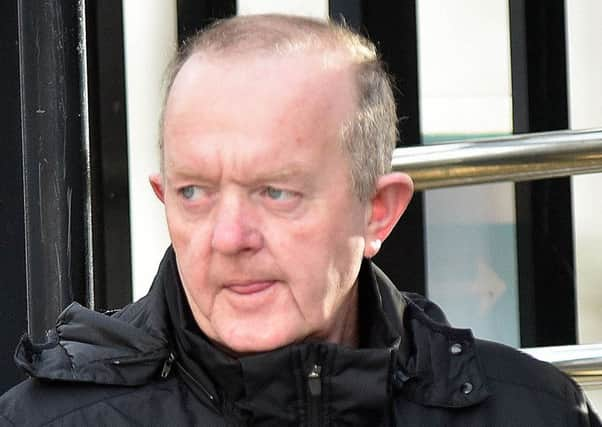Trawl for loyalist collusion documents '˜could cost hundred of thousands'


Counsel for the chief constable argued that ordering full discovery in a case where liability has already been accepted would be an oppressive and disproportionate step.
But lawyers for John Flynn, who sued after surviving two UVF attempts on his life, insisted the material is required to ensure any suspected police wrongdoing is uncovered.
Advertisement
Hide AdAdvertisement
Hide AdMr Flynn, from north Belfast, issued proceedings against the PSNI over murder bids allegedly carried out by an agent who operated in the city’s Mount Vernon area.
In 1992 a gunman tried to shoot him after he was lured to Whiteabbey Hospital on the outskirts of the city.
Five years later a second attempt was made to kill him in a failed car bomb attack.
The 57-year-old brought a lawsuit against the chief constable for alleged negligence and misfeasance in public office.
Advertisement
Hide AdAdvertisement
Hide AdIt was confirmed in 2015 that the PSNI has admitted his misfeasance claim and accepted he should be paid damages which could ultimately reach £75,000.
But the force emphatically denies negligence or having ever employed the agent – identified only in the case as ‘Informant 1’.
He is suspected of involvement in 10-15 murders, punishment shootings, serious beatings, conspiracy to murder, robbery, hijacking and drug dealing.
Mr Flynn’s action was triggered by the findings of Police Ombudsman Nuala O’Loan that some Special Branch officers colluded with loyalist killers.
Advertisement
Hide AdAdvertisement
Hide AdHer Operation Ballast report, issued back in 2007, centred on the activities of a UVF gang allegedly led by Mount Vernon man Mark Haddock.
As part of the lawsuit Mr Flynn’s lawyers are continuing to seek access to a number of categories of documents.
They argued the police admission of partial liability was a tactical move to avoid handing over all files on the informant and cover over the full extent of alleged collusion.
An affidavit filed by Mr Flynn claimed police either failed to arrest the agent for the murders and other crimes or else conducted “sham” interviews, despite knowing he was a leading UVF figure.
Advertisement
Hide AdAdvertisement
Hide AdMisleading records were deliberately compiled, while other documents and forensic exhibits were either destroyed or lost, he alleged.
Mr Flynn also claimed: “I believe that the police knew I was at risk from Informant 1 and were quite content to let me be murdered by him and his associates.”
Last year a High Court judge ruled police have failed to disclose enough documents, and that there was potentially further material in the possession of the force that should be provided.
Appealing that decision, Nicolas Hanna QC, for the chief constable, insisted it was an unnecessary step when Mr Flynn has effectively won the case.
Advertisement
Hide AdAdvertisement
Hide AdThe material being sought covers a period of more than a decade.
Senior judges were told it would take an estimated two years to identify all the files and comply with the level of discovery being sought.
A Public Interest Immunity (PII) process alone would cost in excess of £300,000, according to a superintendent asked to assess the scale.
Around 1,500 documents were said to relate to Informant 1.
But Brian Fee QC, for Mr Flynn, argued it was not enough for police to accept they failed to “keep a proper eye” on the agent.
Claiming his client was treated as “collateral damage”, he stressed that more information was needed for the ultimate assessment of damages.
Following submissions judgment was reserved in the appeal.